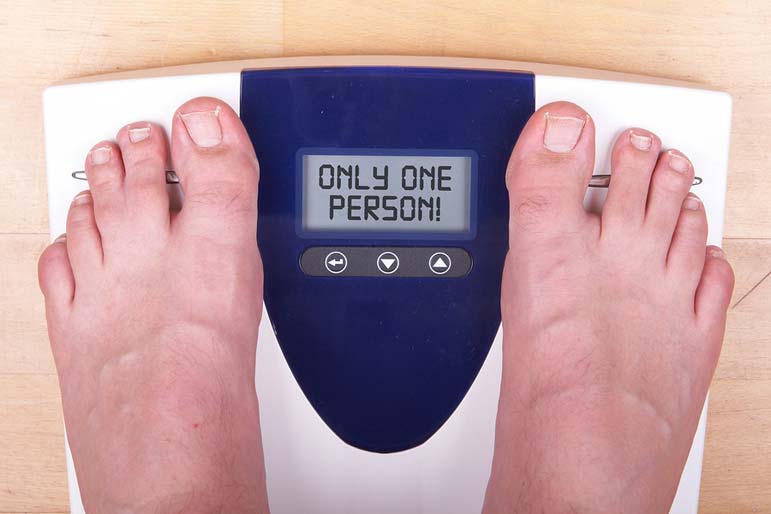
Americans spend $27 billion a year on gym memberships. They spend that money because they believe exercise is the key to losing weight-and fitness companies happily promote this narrative. It's a message the food industry pushes as well: Coca-Cola funded scientists who blamed weight gain on too little exercise rather than on too many calories.
But a growing body of research suggests that Americans trying to lose weight won't get the results they desire by slogging through extra miles on the treadmill-they'll need to cut calories to do it.
Scientists are beginning to understand that there are limits to how much weight people can lose with exercise alone. What people eat-and in what quantity-appears to influence body weight more than how active they are, according to an increasing body of evidence. Exercise remains critical to other aspects of health, such as preventing heart disease. But some scientists say the role it plays in weight loss has been misunderstood for years.
The latest evidence comes from a study published that suggests people who are highly active don't burn more calories than those who are moderately active. Researchers tracked 332 adults in five countries, from the United States, to Jamaica, to Ghana, and found that "total energy expenditure increases with physical activity at low activity levels but plateaus at higher activity levels," according to the paper in Current Biology.
In other words, moving around increased calories burned only up to a point. That contradicts the previous understanding of how activity and energy expenditure are directly linked. We're used to thinking more activity burns more calories, with no limit to that relationship. If there is a limit, exercising beyond it won't help people lose weight.
How could that be? Researchers don't fully understand what's going on, but they have some theories. The body doesn't just burn calories when moving muscles. Cells and organ systems use energy to keep us functioning-to digest food and run the immune system, for example. The bodies of highly active people may do those jobs more efficiently, thereby using less energy, said Herman Pontzer, an anthropology professor at Hunter College in New York and lead author of the study. "It would only take small changes about how the body spent energy in those systems" to make a difference in total energy usage, he said.
Another possibility is that people who are more physically active expend less energy fidgeting or making other small movements during the day, an accumulation of tiny changes that add up to significant energy savings. "Those movements have very low energy expenditures and they're hard to capture," said Diana Thomas, director of the Center for Quantitative Obesity Research at Montclair State University in New Jersey. She wasn't involved in the research but wrote an editorial accompanying the article.
Thomas said more research is needed to understand why people who are more active don't always burn more calories. "There are a lof of unknowns about where this compensation is coming from," she said.
But scientists have know for years that the body can adjust how much energy it uses for normal maintenance. In extreme circumstances, such as starvation or very low calorie diets, metabolism slows down to conserve energy. Something similar might be at work in the metabolism of highly active people.
Amy Luke, a public health researcher at Loyola University in Chicago and a co-author of the study, first noticed in the 2000s the cracks in the accepted understanding that more activity means more calories burned. She was comparing overweight and obese women in the U.S. with lean women in rural Nigeria, expecting to find that the Nigerians expended more energy. "This was, at the time, I thought, a no-brainer," she said. In a paper published in 2009, she reported a surprise: Both groups of women were burning the same amount of calories. And how much exercise they got didn't predict weight changes.
Luke's takeaway from years of research: If you want to lose weight, "eat fewer calories."
The caveat can't be repeated too often: Being active is crucial to many aspects of health, from reducing the risk of cardiovascular disease to improving mental health. The new findings aren't an excuse to lie on the couch and cancel your gym membership.
Pontzer echoed the advice: "We're not saying that exercise isn't important. Of course it is." But for losing or managing weight, "diet is going to be your best tool," he said.
Exercise can actually make it harder for people to moderate how much they eat. "It increases appetite and therefore you're hungrier and you feel the need to replenish yourself," said Kristin Kirkpatrick, manager of wellness nutrition services at the Cleveland Clinic Wellness Institute. She said many of her patients "start eating above and beyond actual hunger once they start exercising."
The need to cut calories, though, is often drowned out by the marketing of the fitness industry. "The message is always 'Join the gym, get this piece of execise equipment.' Everything's about toning and making your body better," Kirkpartick said. "It kind of sets you up for this unrealistic expectation of what your gym membership will do for you."



 Contact The Editor
Contact The Editor
 Articles By This Author
Articles By This Author